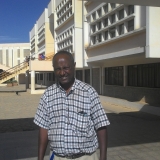The project aims to help achieve agriculture/food security, and poverty reduction through broadening our understanding of the impacts of the SLM program and informed policy/ decision making processes.
Land degradation presents a serious threat to food security and sustainability of agricultural production systems and eco-system functions in many developing countries. It affects some two-thirds of worlds’ agricultural land; resulting in productivity decline, income loss and food insecurity. Governments and donor agencies have been investing substantial resources to promote SLM as part of the effort to improve environmental conditions and reduce poverty. However, the impacts of the program are not yet known or have not yet been evaluated using rigorous methods.
This research strives to identify and measure the impacts of the SLM program. The specific objectives of the proposed research are: (i) Analyze the impact of the SLM program on productivity/ income and welfare of smallholder farmers involved; (ii) Assess adoption and the extent of the spread and up-scaling of (best) SLM practices and technologies on agricultural landscapes in the watersheds; and (iii) Analyze the impacts on restoration of ecosystem services (i.e., eco-system benefits) of the SLM program. Key questions include: has the SLM program brought about the expected results or impacts? What is the impact on productivity and income of smallholder farmers? To what extent has this contributed to poverty reduction (reduction in vulnerability) of rural households? The current proposal focuses on achieving objectives (i) & (ii) to be done in 2014. The study draws on farm household model with emphasis on land (SLM) investments as its conceptual framework and propensity score matching (PSM) method of impact evaluation will be used for empirical analysis. The study will use survey dataset collected by EEPFE during 2009 and 2013 in four major regions of Ethiopia Oromia, Amhara Tigrai and SNNP involving 600 households. In 2014, two research reports and associated research brief(s) will be produced. Research outputs will be disseminated through various ways to relevant stakeholders and audiences.
